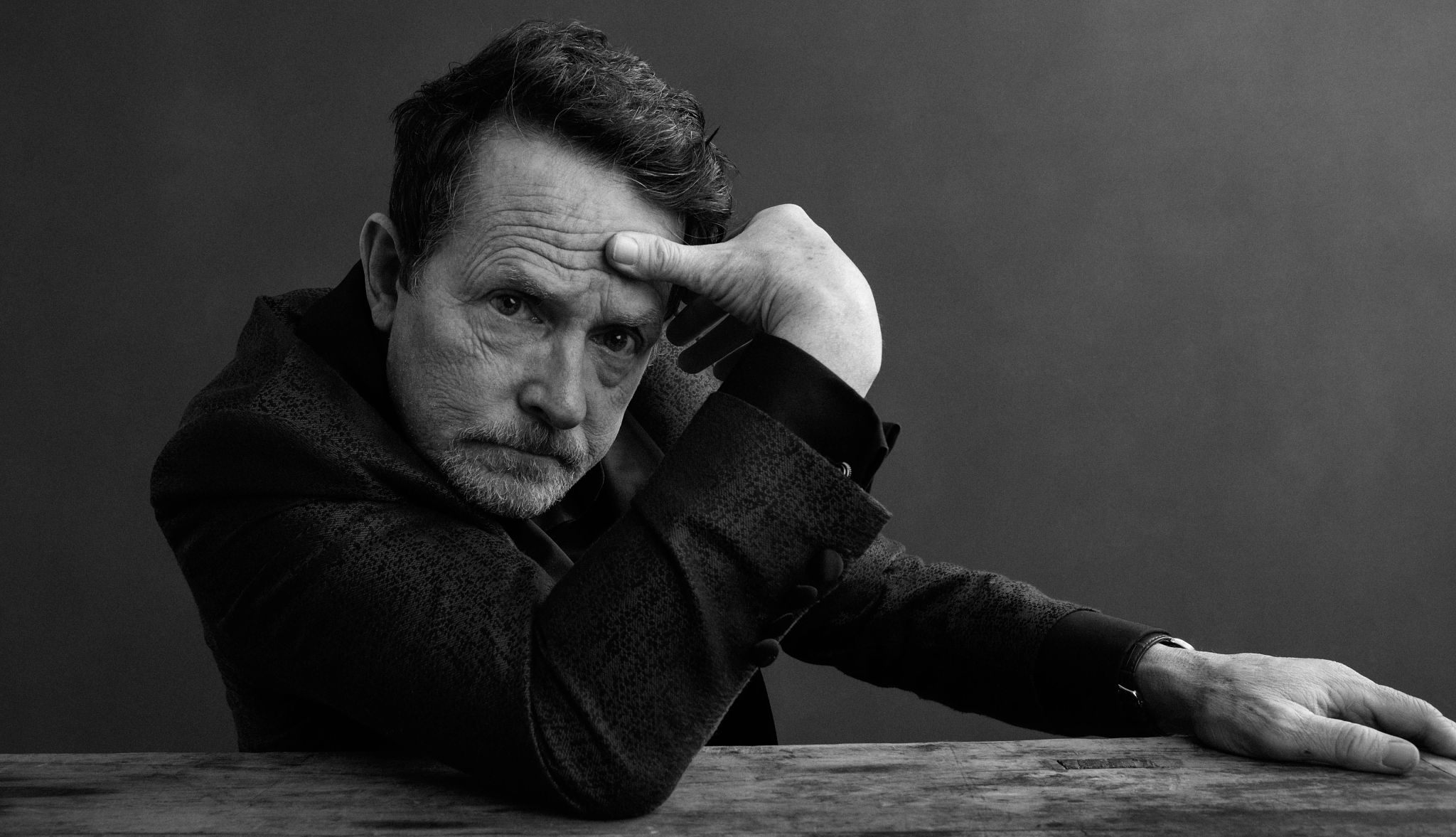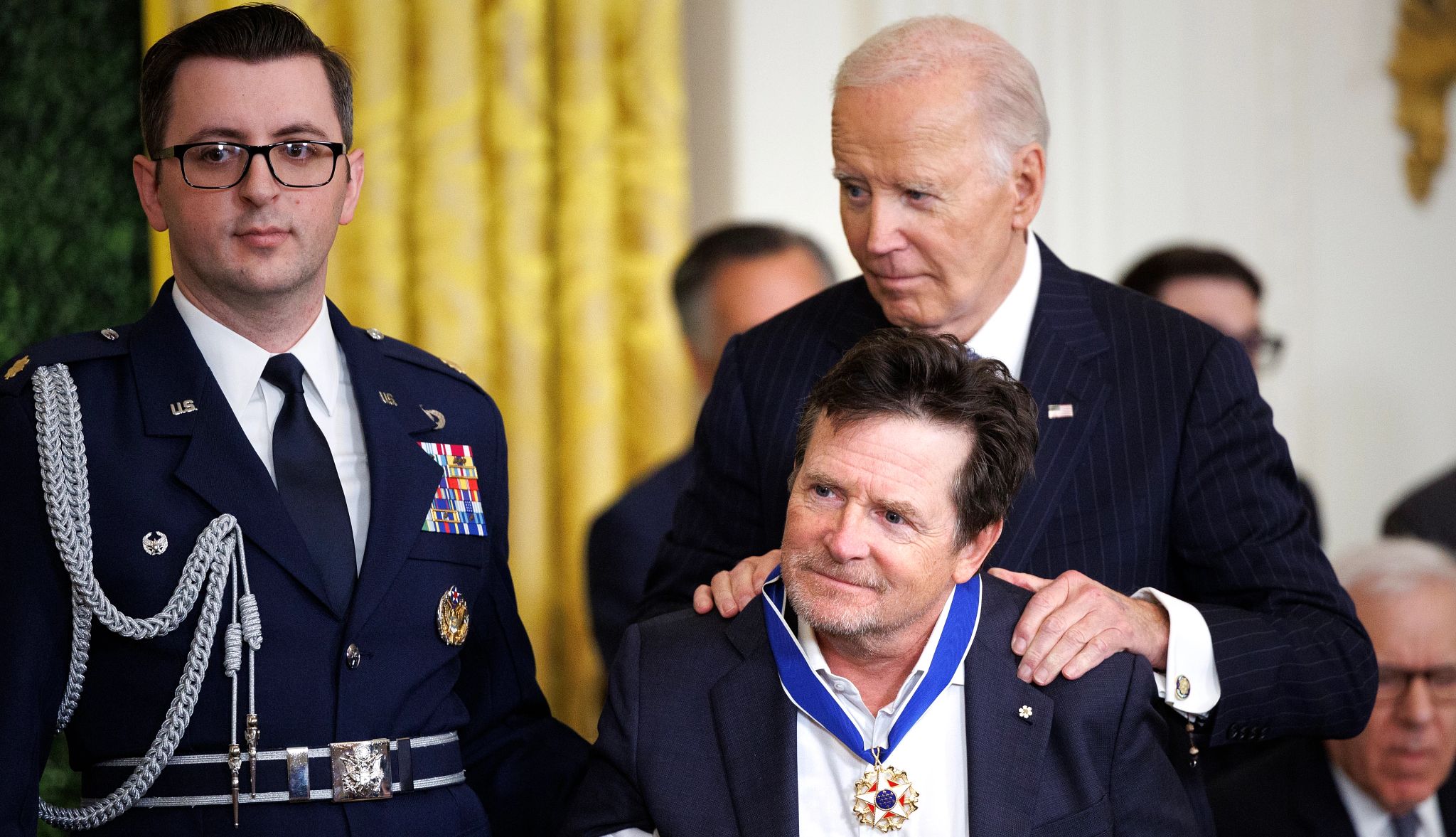AARP Hearing Center


Although Michael J. Fox, 63, retired from acting in 2020 after realizing that his Parkinson’s disease was making it difficult to memorize lines, he continues to be a source of inspiration. Bill Lawrence, co-creator of the Apple TV+ hit Shrinking, told People magazine last month that he based Harrison Ford’s on-screen character, who has Parkinson’s, on his longtime friend and colleague Fox.
“I found the first mentor in my life and career, Michael J. Fox, to be so inspiring,” says Lawrence, who worked with Fox on the late ’90 sitcom Spin City. “The way he took (his condition) in stride and continues to work harder than anybody I know.”
The five-time Emmy Award-winning actor, who first became a household name playing Alex P. Keaton on the hit 1980s sitcom Family Ties, thought his time as a public figure might be over after being diagnosed with the incurable degenerative disease in 1991. But he’s done anything but slow down. He launched the Michael J. Fox Foundation for Parkinson’s Research in 2000, which has (thus far) raised $2 billion for Parkinson’s research. Last year, he received a CNN Heroes Legacy Award, and in November he walked the red carpet with his wife and four kids at the A Funny Thing Happened On The Way To Cure Parkinson’s event.
With a big year ahead — he was awarded the nation’s highest civilian honor, the Presidential Medal of Freedom, on Jan. 4 by President Joe Biden, and this summer is the 40th anniversary of Back to the Future, perhaps his most famous movie — we revisited some of our favorite conversations with Fox over the years, dating back to 2006. Here are just a few of the words of wisdom he’s shared with AARP over the last two decades.


Never let a disease define your life
“Some days are a struggle. Some days are more difficult than others. But the disease is this thing that’s attached to my life — it isn’t the driver.”
Don’t wait for a reason to feel grateful
“I also had an insight about my father-in-law, who had passed away and always espoused gratitude and acceptance and confidence. And I started to notice things I was grateful for and the way other people would respond to difficulty with gratitude. I concluded that gratitude makes optimism sustainable. And if you don’t think you have anything to be grateful for, keep looking. Because you don’t just receive optimism. You can’t wait for things to be great and then be grateful for that. You’ve got to behave in a way that promotes that.”




































































You Might Also Like
Not Just Doctors: The Other Health Care Providers Who Treat You
Here's a look at five medical professionals who may be working in your physician’s office
The U.S. is Facing a Physician Shortage
Here’s how you can find the care you need
'Finding Your Roots' Host Shares Celebs' Family Secrets
Henry Louis Gates, Jr. gives AARP a sneak preview of his ancestry show's 2025 season